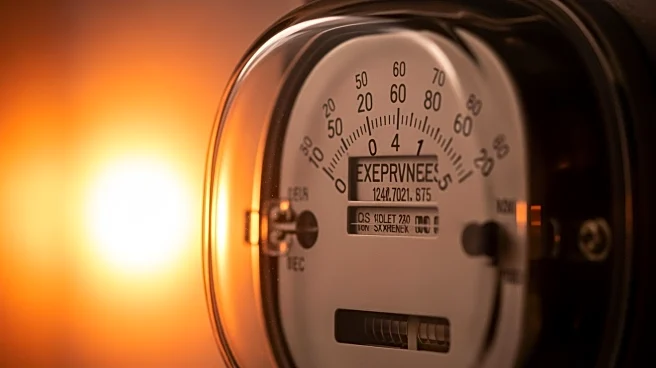What's Happening?
The Florida Public Service Commission (PSC), appointed by Governor DeSantis, has approved a $7 billion rate hike for Florida Power & Light (FPL) customers, marking the largest rate increase in U.S. history. Starting January 2026, 12 million Floridians
will see their monthly bills increase by over $14, with annual costs rising by $175 next year and $289 by 2028. The decision has sparked widespread public outcry, with calls from elected officials and advocacy groups urging the PSC to reject the proposal. Critics argue that the rate hike disproportionately affects working families already burdened by rising living costs, while benefiting FPL shareholders with increased profits.
Why It's Important?
The approval of this rate hike has significant implications for Florida residents, particularly those in low-income communities who may struggle to afford higher utility bills. The decision underscores concerns about the influence of corporate interests in public utility regulation and the need for legislative action to ensure fair energy pricing. The rate hike could exacerbate the affordability crisis in Florida, prompting calls for reform in how energy utilities are regulated. The outcome may influence future energy policy and regulatory practices, impacting millions of consumers and the state's economic landscape.
What's Next?
Advocacy groups and affected residents are expected to continue opposing the rate hike, potentially leading to legal challenges. The Office of Public Counsel and other stakeholders may seek to appeal the PSC's decision to the Florida Supreme Court. The ongoing debate may prompt legislative efforts to address energy affordability and regulatory transparency. As the rate hike takes effect, public pressure may increase for reforms that prioritize consumer interests over corporate profits.
















